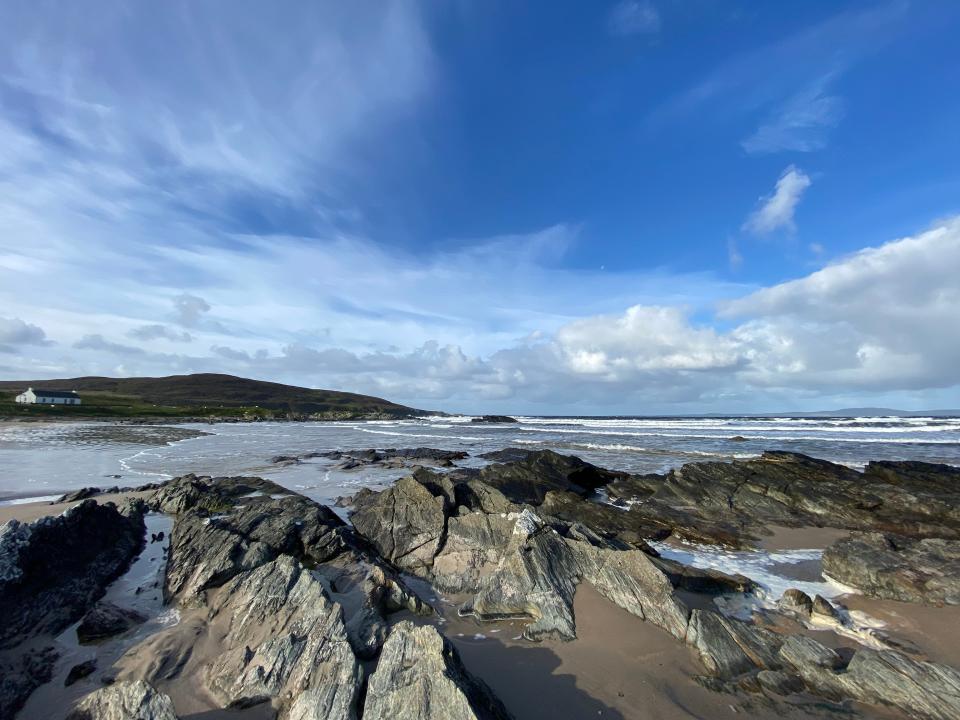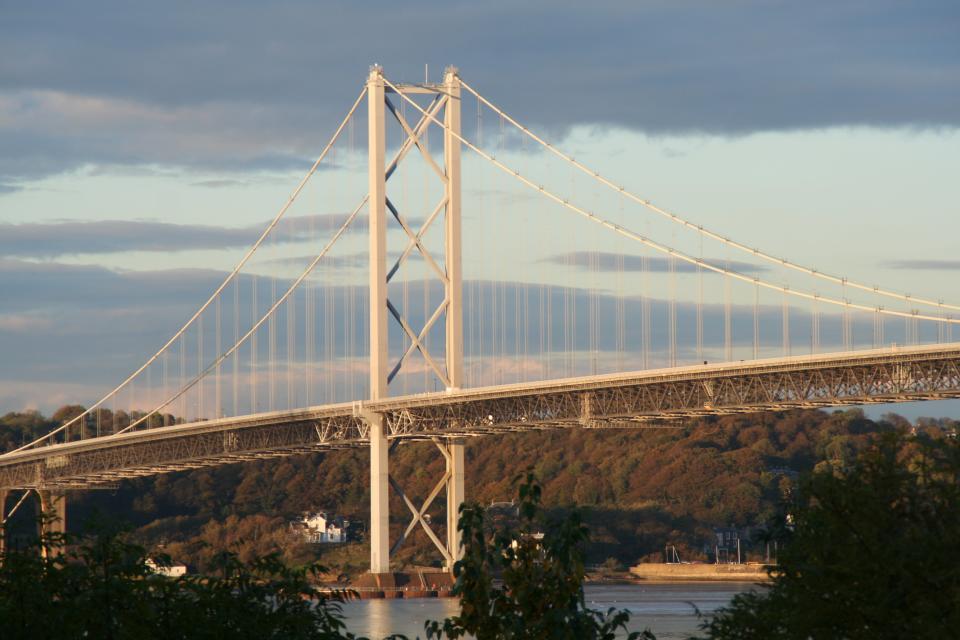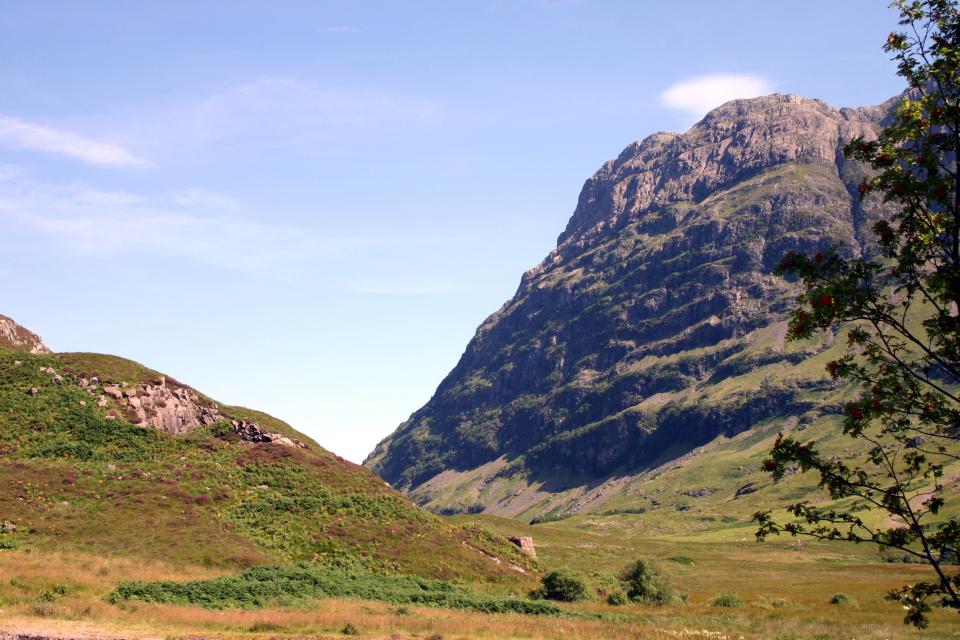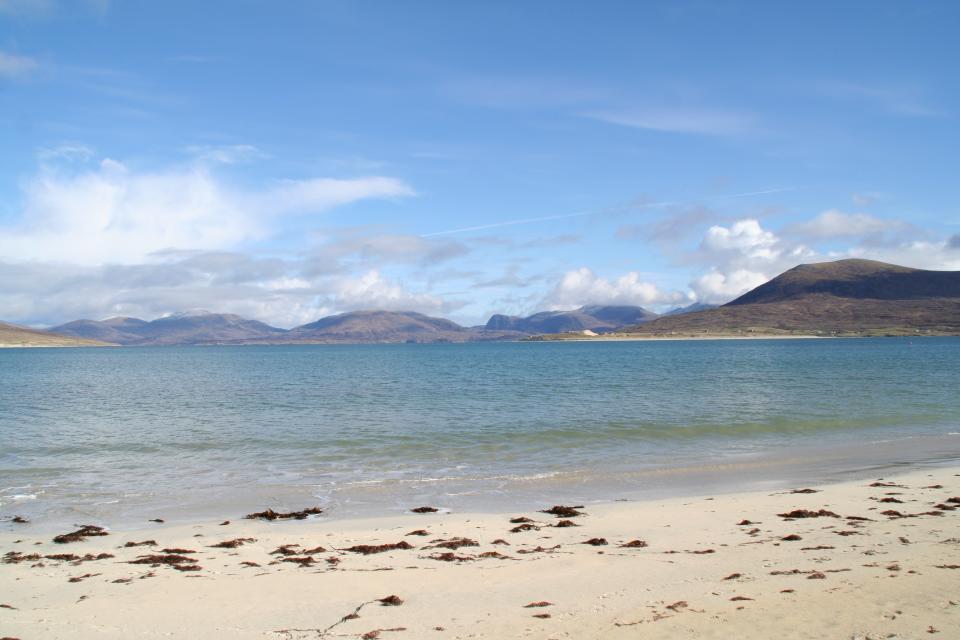Why Scotland is a perfect replacement for Portugal – really

“They’ve stopped our Portugal escape,” lamented my neighbour as we huddled once again around the weary firepit. His disappointment at the green list exclusion was crushing; I had to act.
“What about enjoying some of the best things about Portugal here in Scotland?” I said, before I’d really formed the idea. An hour later he was sold. I was too, immersed not only in the layers of connections between the countries but, whisper it, all the things Scotland does even better.
It’s not that they are competing countries – more wistful blood brothers, as I’ve found on more than 20 odd visits. A Portuguese writer I met in Evora insisted that Portugal is to Spain what Scotland is to England: a smaller, culturally distinct neighbour whose history is alive with tussles between the two.
This clicked the first time I heard fado in Lisbon’s Bairro Alto. I needed no introduction to Portuguese saudade – the nostalgia for an irretrievably lost past is riven through the heart of Gaelic song, too. To experience this, you need only go as far as the folk nights in Sandy Bell’s in Edinburgh, but if you’ve more time it’s worth flying to Barra, landing on the beach and catching the Vatersay Boys enjoying a session at the Castlebay Hotel. The craic and energy is infectious; the performances soar. Seared into the background, though, are the baleful Clearances that have rendered swathes of the Highlands a manmade wilderness.
Edinburgh in this prism is a sort of Lisbon of the far north. Or is it the other way round? Scots uber-architect Robert Adam passionately petitioned the Portuguese king to let him rebuild Lisbon after the 1755 earthquake. It fell on deaf ears, but I’ve met Lisbonites who reckon his extravagant plans influenced the fanciful classically influenced rebuild anyway.

Both Edinburgh and Lisbon are hindered by similar topography, sitting on wide estuaries, dominated by a crumple of hills, sharing the Willy Wonka-esque network of tunnels, trams, closes and bridges needed to navigate them. Both sport their omnipresent castles and landmark abbeys. And suspension bridges: Lisbon’s Ponte 25 de Abril succeeded Edinburgh’s Forth Road Bridge as the largest suspension bridge outside North America on opening in 1966.
The connections between Scotland and Portugal are strong in second city Porto too. It instantly felt to me like Portugal’s Glasgow – the often overlooked, but deeply vibrant cultural hub of the country. From post-heavy industrial depression, both cities have reinvented themselves, using their respective stints as European Capital of Culture to conjure up a rebrand that continues to catch the eye of tourists.
It instantly felt to me like Portugal’s Glasgow – the often overlooked, but deeply vibrant cultural hub of the country
Porto is famous, of course, for its port houses, many of which are sprinkled with Scottish connections. One of the biggest names, Cockburn’s, was set up in 1815 by Scottish brothers Robert and John Cockburn, wine merchants from Leith who saw an opportunity and seized it. For them it was all about the “quality of the wine”, a similar obsession with perfection found in Scottish whisky.
You can dabble around the port houses of Vila Nova de Gaia, but why would you when you can tuck into whisky on Islay? On one gorgeous white beach-kissed isle you can indulge in nine striking distilleries, even toasting a tasting on one of those wild beaches. These days there are distillery cafes at Ardbeg, Kilchoman and Ardnahoe, plus exotic food pairing sessions – Laphroaig with orange-flavoured chocolate, anyone?
A walkway now ripples between Ardbeg, Lagavulin and Laphroaig, connecting the three whitewashed Victorian dames that emerged from the rocky shores of Islay’s southern fringes during Porto’s port golden age. The same ships and sailors who battled across the Bay of Biscay in search of port ploughed these waters. Out of financial expediency, empty port casks were often turned to whisky maturation, a trend that continues today.

When it comes to its landscapes, Scotland blows Portugal out of the water (if you’ll let me put the epic, 2,351m-high Pico on the Azores to one side – and Madeira). Scotland is, after all, a country with 282 Munros (mountains over 3,000ft), crisscrossed by long-distance walking trails, where hiking is inexorably ingrained in the culture. Scotland, in short, is life-affirming post-lockdown escape writ large.
But surely when it comes to beaches Scotland is as humbled as we were at Lisbon’s Estadio da Luz in 1993 by a 5-0 men’s football defeat whose pain I can still feel? Yes, the Algarve and Alentejo have world-class beaches. But so too does Scotland – fringing the mainland, and on the Firth of Clyde, Northern Isles and Inner Hebrides. And then there is Harris. This puffy white-sand wonder rests on some of the oldest rocks on the planet. The chances are it will be just you, the seals and the seabirds.

It was on Harris that my wee daughters informed daddy about yet more similarities. We’d been digging for clams in the Algarve’s Rio Formosa the year before. “This looks just like Portugal,” suggested Tara while looking over the Luskentyre. So we dug for clams with plastic sandcastle spades, and then ate like Celtic kings that night on clams cooked in Thistly Cross cider from East Lothian. Conjuring up that scene for my neighbour, he smiled and said: “I guess it’s ‘green list for go’ for Scotland this summer”.
Read More
Why you should leave Lisbon for the rough-hewn Alentejo on your next trip to Portugal

 Yahoo Finance
Yahoo Finance 